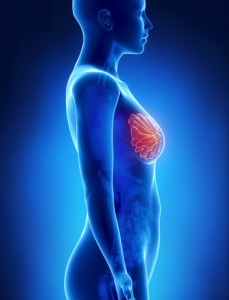 A recent study entitled “DEAD-box helicase DP103 defines metastatic potential of human breast cancers” and published in the Journal of Clinical Investigation, identified a gene that can help to predict both breast cancer relapses and responses to chemotherapy, allowing doctors to customize treatment regimens personalized to each individual patient depending on their breast cancer classification.
A recent study entitled “DEAD-box helicase DP103 defines metastatic potential of human breast cancers” and published in the Journal of Clinical Investigation, identified a gene that can help to predict both breast cancer relapses and responses to chemotherapy, allowing doctors to customize treatment regimens personalized to each individual patient depending on their breast cancer classification.
Even though breast cancer treatments have been the focus of intense research, 30% of patients with early breast cancers will suffer from relapse with distant metastasis, and some of them do not respond to chemotherapy.
So far, it has been a challenge to identify patients at risk for relapse. As a result, the need to identify markers and therapeutic targets for metastatic breast cancers led a group of scientists from A*STAR’s Institute of Molecular and Cell Biology (IMCB), and the Cancer Science Institute of Singapore (CSI Singapore) at the National University of Singapore (NUS) to team up in an attempt to fill this gap.
Their results revealed that DEAD-box helicase DP103 is a biomarker and metastasis-driving oncogene in human breast cancers. This gene seems to elevate matrix metallopeptidase 9 (MMP9) levels, which in turn activate NF-κB and lead to metastasis and tissue invasion.
The researchers observed that upon reduction of DP103 expression in invasive breast cancer cells, all of these cellular pathways were abrogated and prevented metastasis in a mouse model of breast cancer.
Furthermore, in samples from breast cancer patients, elevated levels of DP103 correlated with enhanced MMP9, reduced overall survival, and reduced survival after relapse.
“Doctors are unable to tell if a breast cancer patient will respond to chemotherapy until six months after the treatment has been prescribed. It is very worrisome as the ones who are not responsive to chemotherapy usually also suffer relapses due to metastasis. This DP103 gene that we found explains the link and will facilitate doctors in selecting suitable treatments for different cases of breast cancer,” Dr. Vinay Tergaonkar Principal Investigator at IMCB said in an A*STAR press release.
[adrotate group=”3″]
These results suggest the potential DP103 holds as a therapeutic target for breast cancer treatment, acting as a master regulator of metastasis potential and chemotherapy sensitivity.
“DP103 is a novel biomarker that could help doctors select appropriate treatments for breast cancer patients at an early stage. It is also a therapeutic target which could be explored further to develop drugs that suppress breast cancer growth, as well as metastasis,” Dr. Alan Prem Kumar,Principal Associate at CSI Singapore and Assistant Professor at the Department of Pharmacology, NUS Yong Loo Lin School of Medicine also added in the press release.
